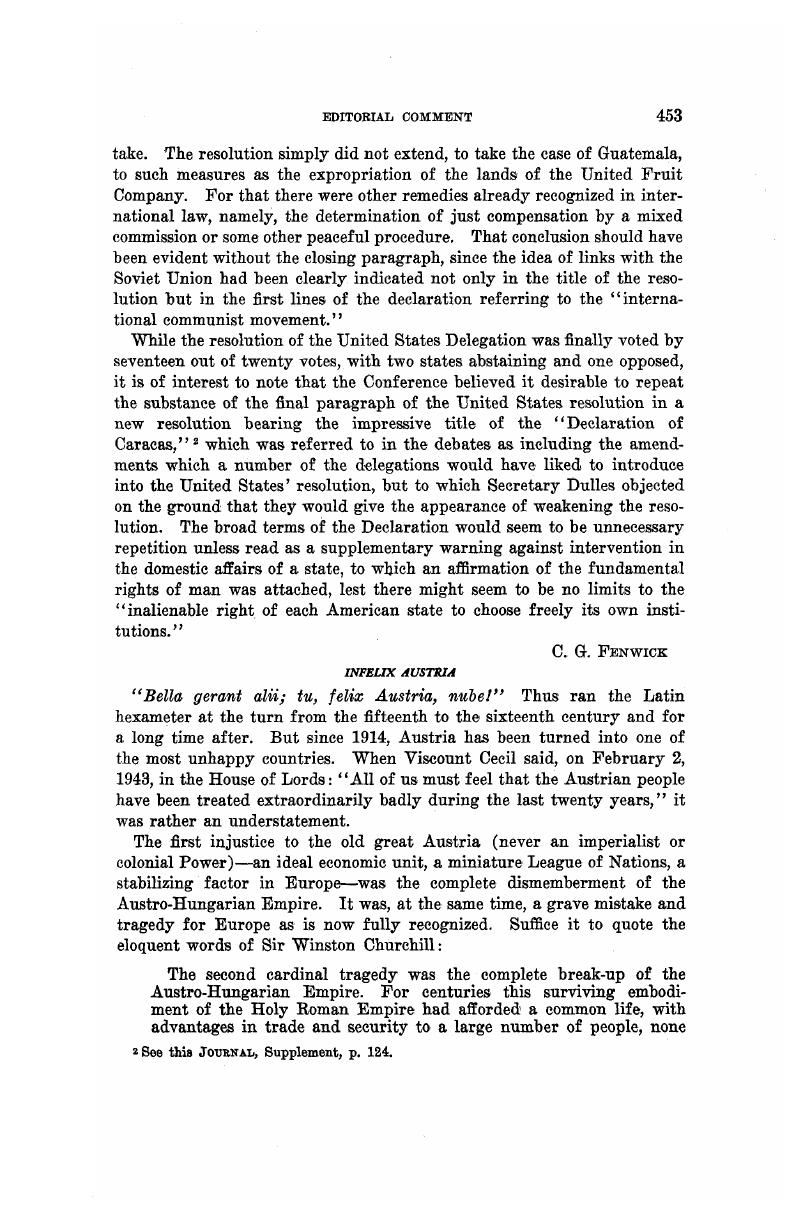No CrossRef data available.
Article contents
Abstract

- Type
- Editorial Comment
- Information
- Copyright
- Copyright © American Society of International Law 1954
References
1 Sir Winston Churchill, The Second World War. Vol. I: The Gathering Storm (1948), p. 10.
2 “Le principe wilsonien de libre disposition des peuples n’a contribué à la stabilisation de l’Europe et du monde. … Les nouveaux Etats, très exposés aux pressions extérieures, furent trop faibles pour se soutenir d’une vie indépendante.” Charles de Visscher, Théories et Réalités en Droit International Public (Paris, 1953), p. 76.
3 Op. cit., p. 10.
4 Sir Winston Churchill speaks of the “rape of Austria” (op. cit., p. 259).
5 All the documents concerning Austria from 1938 to 1947 can be found in German translation in Stefan Verosta, Die internationale Stellung Österreichs (Vienna, 1947).
6 For the period up to 1950 see Philip E. Moseley, “The Treaty with Austria,” International Organization, Vol. IV, No. 2 (May, 1950), pp. 219–235. See also The Austrian State Treaty: A Case Study of Soviet Tactics, Department of State Publication 5012 (May, 1953, 16 pp.).
7 The New York Times, April 13, 1954, p. 25.
8 Austria’s gold and dollar reserve increased by $95 million during 1953 to reach a total of $238 million. Exports climbed from $286 million in 1949 to an estimated $530 million in 1953. Industrial production increased by nearly forty percent in the same period (Report to Congress on the Mutual Security Program for the Six Months Ended December 31, 1953, p. 7). Austria has in one year balanced her budget and her trade, stabilized her prices and her currency and turned from a debtor to a creditor of her European neighbors, an achievement equalled only by Western Germany (The New York Times, March 28, 1954, p. 14).
9 At the recent Berlin Conference, Secretary of State John Foster Dulles spoke of the “extraordinary performance of the Austrians themselves,” and stated: “Few governments in the world today can present a record of real achievement comparable to that of the Austrian government installed in 1945.” He spoke of Austria’s social peace, economic well-being, democratic institutions and her “demonstration of political maturity.”




